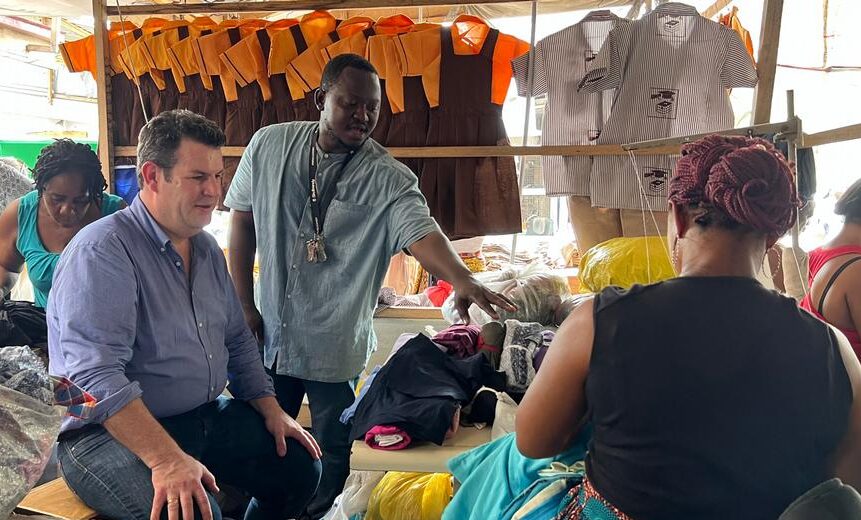AFRICA INC.
– Rising economies, start-ups, and Black wealth, etc.
Is The New German Migration Package a Threat To Africa’s Skilled Resources?

By Aly Tandian
Germany presented a project for migrant counselling centers in five African countries, offering a selected category of Africans the opportunity to settle on its soil. A correspondent spoke with sociologist Aly Tandian about the significance of the decision.
Why is Germany considering bringing skilled lab our into Germany and how does it propose to do so?
In Germany, the policy of bringing in skilled labor has further developed in recent years through a “welcoming culture” that has greatly facilitated the arrival and especially the integration of many migrants.
As a reminder, Germany hosted nearly one million refugees during the 2015 Syrian crisis, which motivated Chancellor Angela Merkel to award the Nansen Prize of the United Nations High Commissioner for Refugees.
Only the reception of these migrants is far from being motivated by simple humanistic reasons because, in this country as in many others in Europe, immigration provides solutions to demographic and economic problems.
It can help balance an ageing society and finance the pension system in addition to being able to compensate for the current shortage of skilled workers. The need for the latter in the labor market is so heavy that Germany is adopting new reception policies every day.
To date, the accelerated procedure for skilled labor allows employers to submit an application for recognition of the foreign qualification in order to facilitate the visa application of the worker to be recruited.
Which African countries will be concerned and what kind of people are wanted?
In Africa, in addition to Ghana, Berlin will establish centers in Morocco, Tunisia, Egypt and Nigeria. The people sought are skilled workers with professional training, skilled workers with academic training, highly qualified workers, researchers, scientists and managers. The aim is to help reduce the significant shortage of skilled labor that Germany is facing.
What are the implications of such policies?
Recently, the German Development Minister, Svenja Schulze, spoke of solutions that benefit everyone, but it seems to me that we must put things into perspective.
Today, Ghana is in dire need of this workforce, but it is one of the African countries where Germany hopes to find a skilled workforce. With hindsight, this policy of qualified recruitment in the countries of the South by countries of the North suggests that the countries of origin are in a way incubators where experts are born, educated and trained before seeing them leave for other destinations. This form of skilled labor migration should be rethought and above all framed on both sides, in addition to the fact that it raises an ethical question.
Agreements should be signed between States, not commitments between skilled workers and employers. A rigorous framework that benefits workers, employers and States would avoid making foreign workers more precarious, who are often paid less than their national colleagues.
Is that not one way to encourage brain drain?
I would rather talk about the policy to attract skilled labor that other countries such as France have committed to. In its law, the French government provides for the creation of a specific residence permit for foreign doctors. According to the Organization for Economic Co-operation and Development (OECD), in 2022 the France hired some 25,000 foreign-born doctors, or 12% of the total number of practitioners registered with the College of Physicians.
There is reason to wonder about the risk of large-scale plundering of qualified resources. Especially since in this country, the procedure for authorization to practice has been simplified in order to facilitate the recruitment of foreign skilled labor.
African countries must have their own migration agenda. Instead, they should encourage the mobility of qualified experts supported by circular migration. With the latter, it will be possible for qualified experts to intervene alternately in several countries while benefiting from rigorous protection.
Circular migration is a way to serve the labor market needs of destination countries, to promote development in countries of origin and to benefit migrants themselves, we can then say that it is a “triple win”.
In certain areas such as health and education, this would be an excellent thing, especially since the Internet will facilitate exchanges.
Newsletter
Subscribe to our bi-weekly newsletter and be the first to Receive New Updates.
Your comments, ideas, and thoughts matter.
Drop us a line: